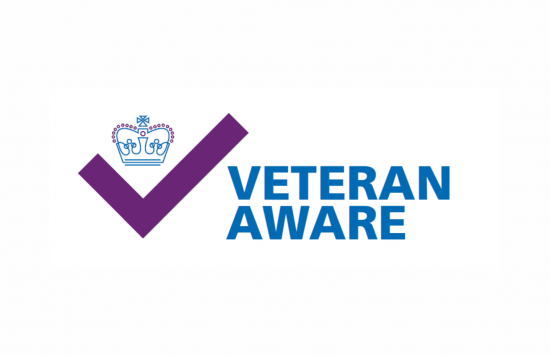The Trust has been named a Veteran Aware Trust in recognition of its commitment to improving NHS care for veterans, reservists, members of the Armed Forces and their families. Glynis Freeman from Bedfordshire is supporting the project as a Veterans’ Champion to share her insight and experience gained as the wife of a former RAF corporal.
“My husband, Alan, served as a corporal in the RAF and was based at Henlow Camp. We now live in North Bedfordshire and he currently works for a major communications company based in London.
Having lived the life of a wife to a member of the armed forces, I feel I have a good picture of how physical and mental health is provided across the forces and where it could be improved. One of the big issues I see is people falling through gaps in the system.
Service personnel and their families can move regularly, generally around every 18 months to three years, and relocating to a new area means registering with a new GP practice and dentist.
Demand for GP support can be high and their lists are running at capacity and therefore often closed. My practice has around 14,000 patients. With such regular moves there’s also the risk of constantly dropping off referral waiting lists for one area-specific provider and then having to be re-referred by a new GP once registered, meaning starting again at the bottom of the list.
This can be a huge challenge for those serving in the forces, and their families. This can also be similar for veterans and their families. When they leave their military home and life to take up civilian life, they are on their own in an unfamiliar environment. It is not always welcoming.
Civilian life does take some getting used to. They have to find their own home to begin with. They then have to get accepted in their new environment before they can start to make friends. It took us two years before we felt accepted in our village and we managed to settle into civilian life, as we were so used to military quarters and life. Life became very lonely. Some struggle to find themselves a new home at all. We were lucky in that respect.
Staying in one location is another struggle. They dream of the day when they can put down roots and not have to move again, but when it comes it is hard. Some have nowhere to settle, they have no home. There’s also the issue of employment. Most have only been employed by the armed forces. They don’t know anything else. So how do they achieve employment in civilian life?
Some are lucky, however some are not so lucky. Everything hangs on them being able to achieve that employment. The work for those in the forces can also bring tremendous psychological pressures. They can experience situations nobody should ever have to and acknowledging that PSTD, anxiety and depression are likely outcomes – and that a clear support and treatment pathway is required – is vital.
Not everyone needs support, and some of those that do refuse to accept that they need support. Linking and strengthening NHS support for veterans and serving members is important. Making sure these people don’t bottle up feelings and emotions, and have an outlet, is important. The risk of suicide is high.
I am studying for a PhD in stress, coping and chronic disease and feel passionately that physical and emotional healthcare should be looked at together in providing help and support for all people.
The project by East London NHS Foundation Trust for veterans is tremendously important and I am proud to be involved. I hope that my lived experience will help, as will everything I continue to learn from military families through singing with the Military Wives Choir.”

